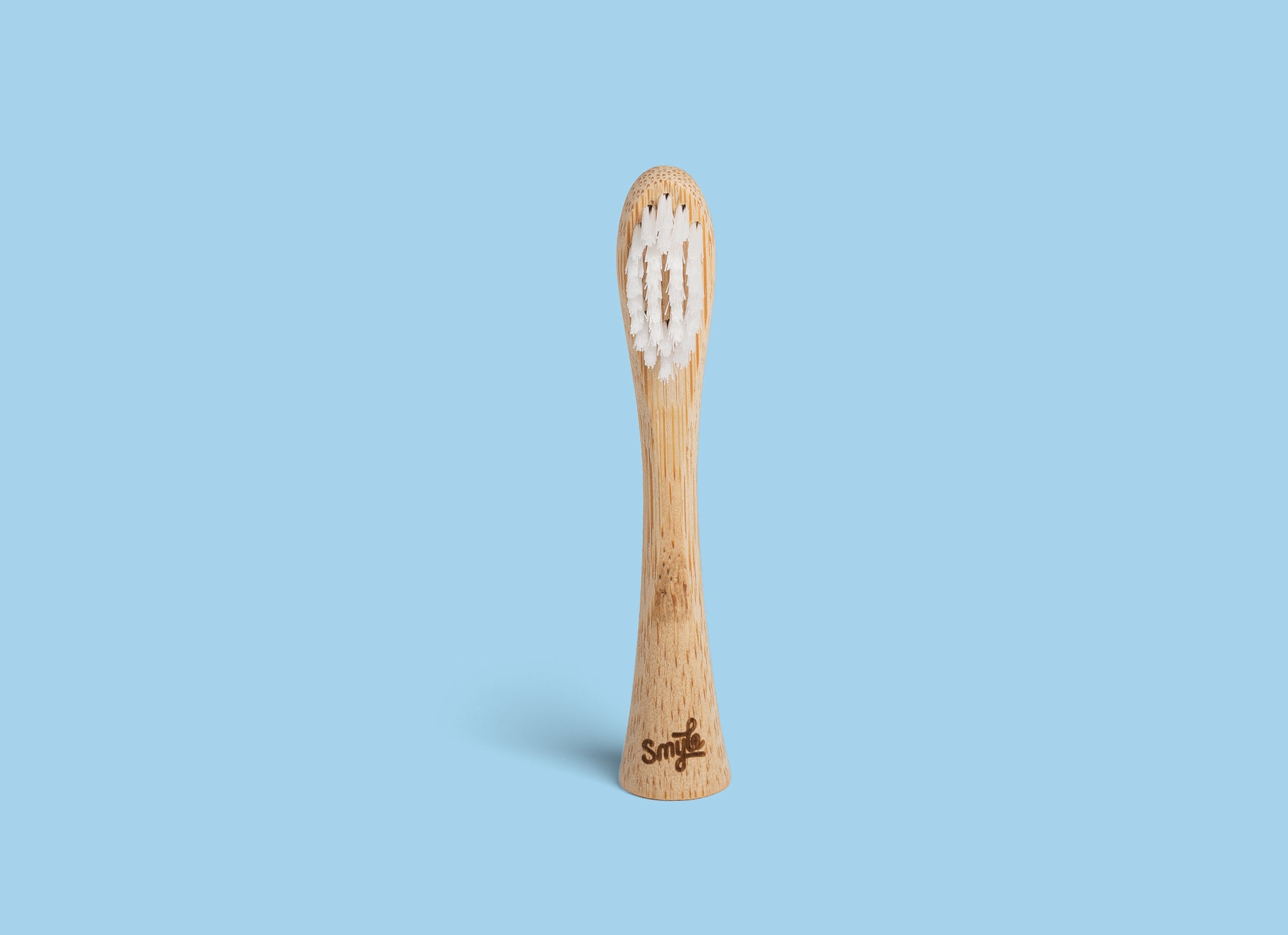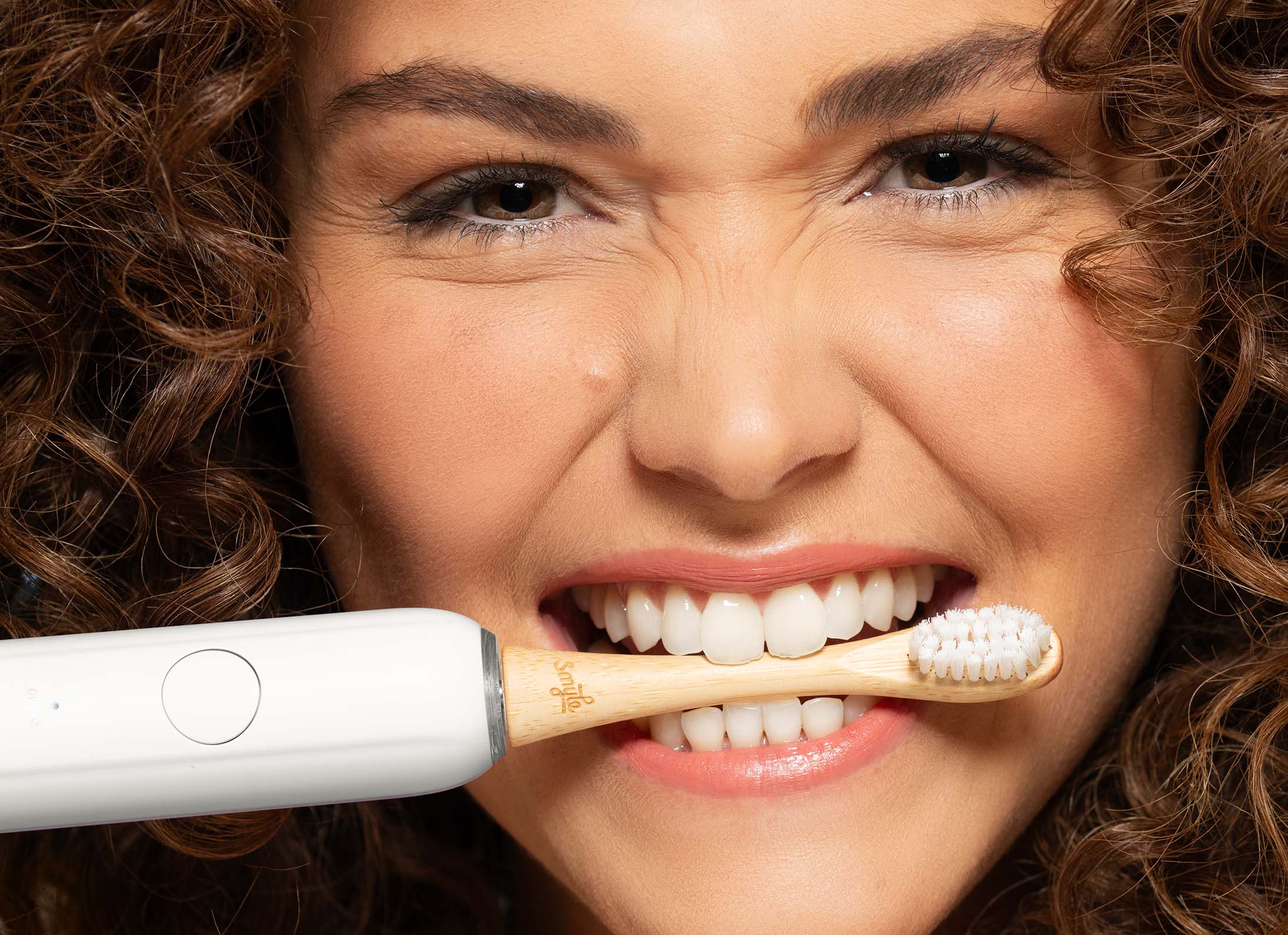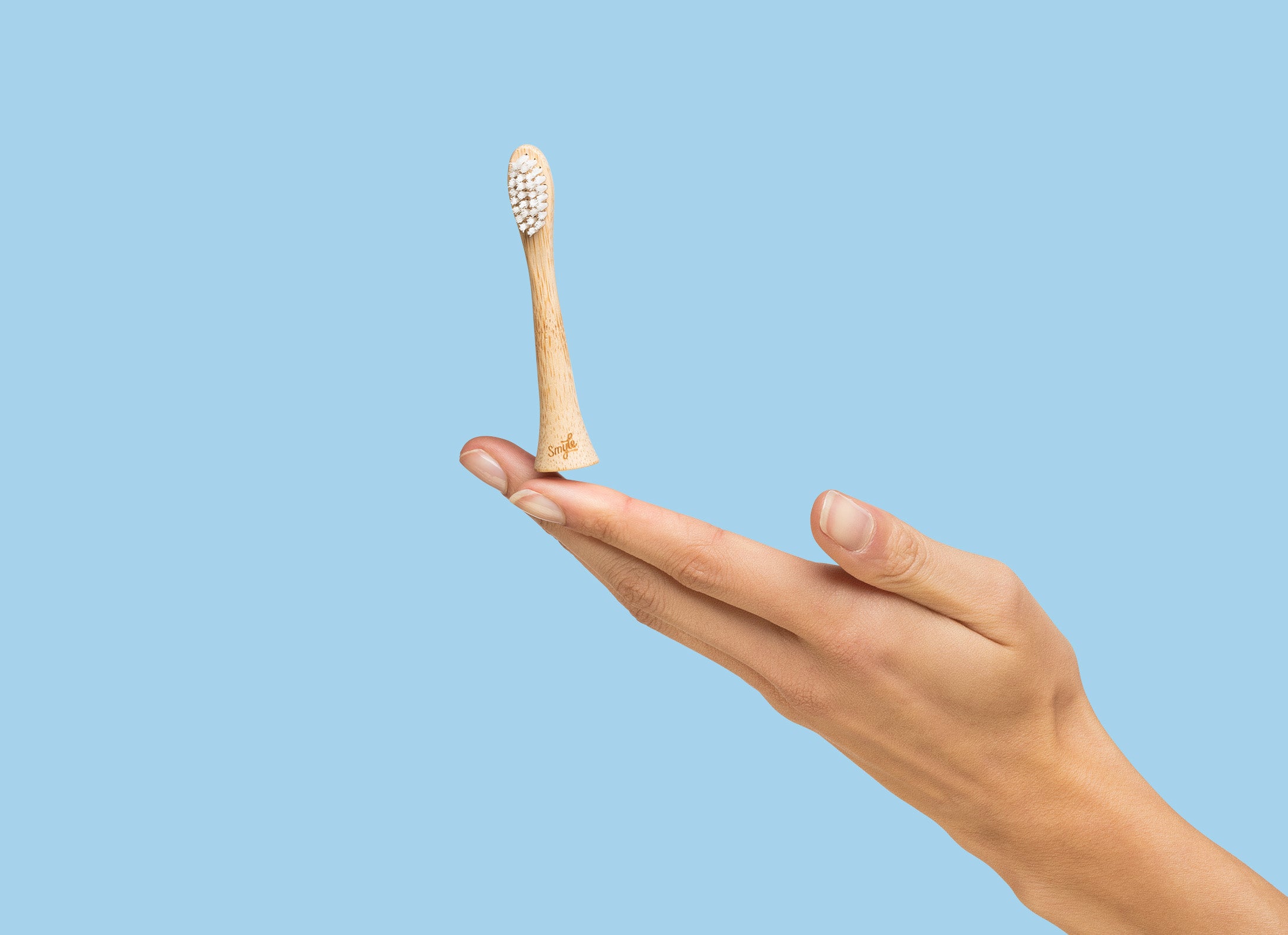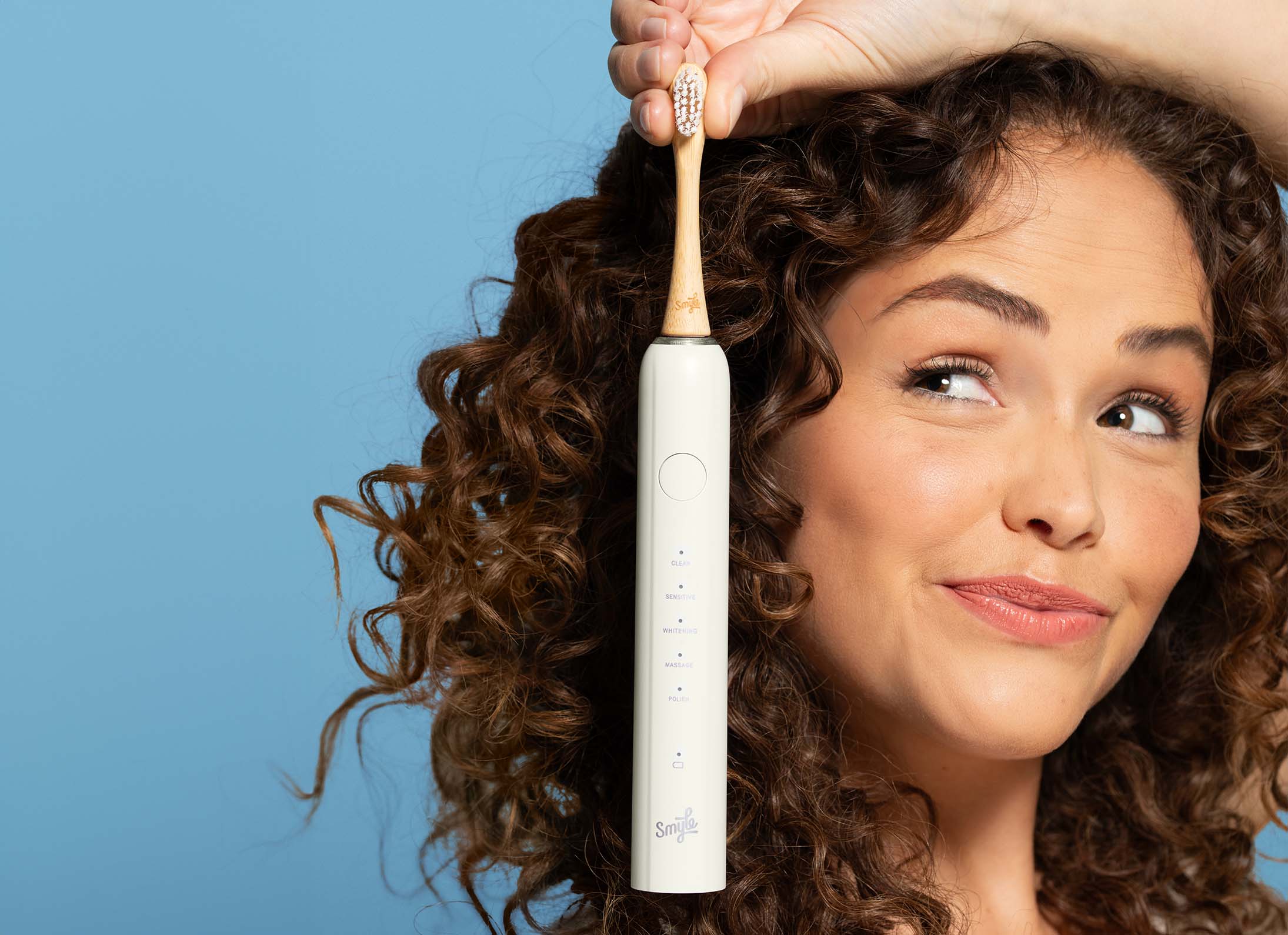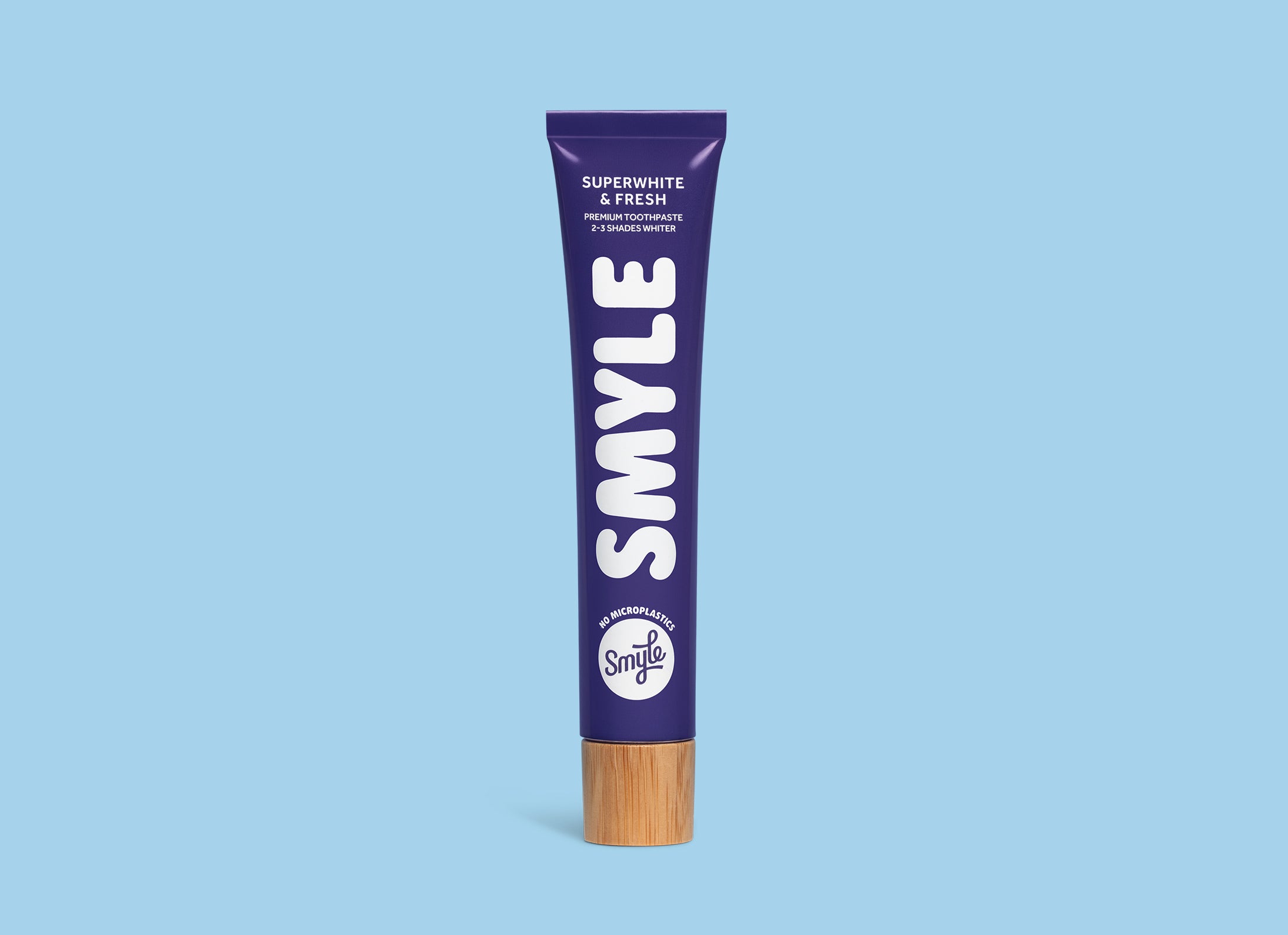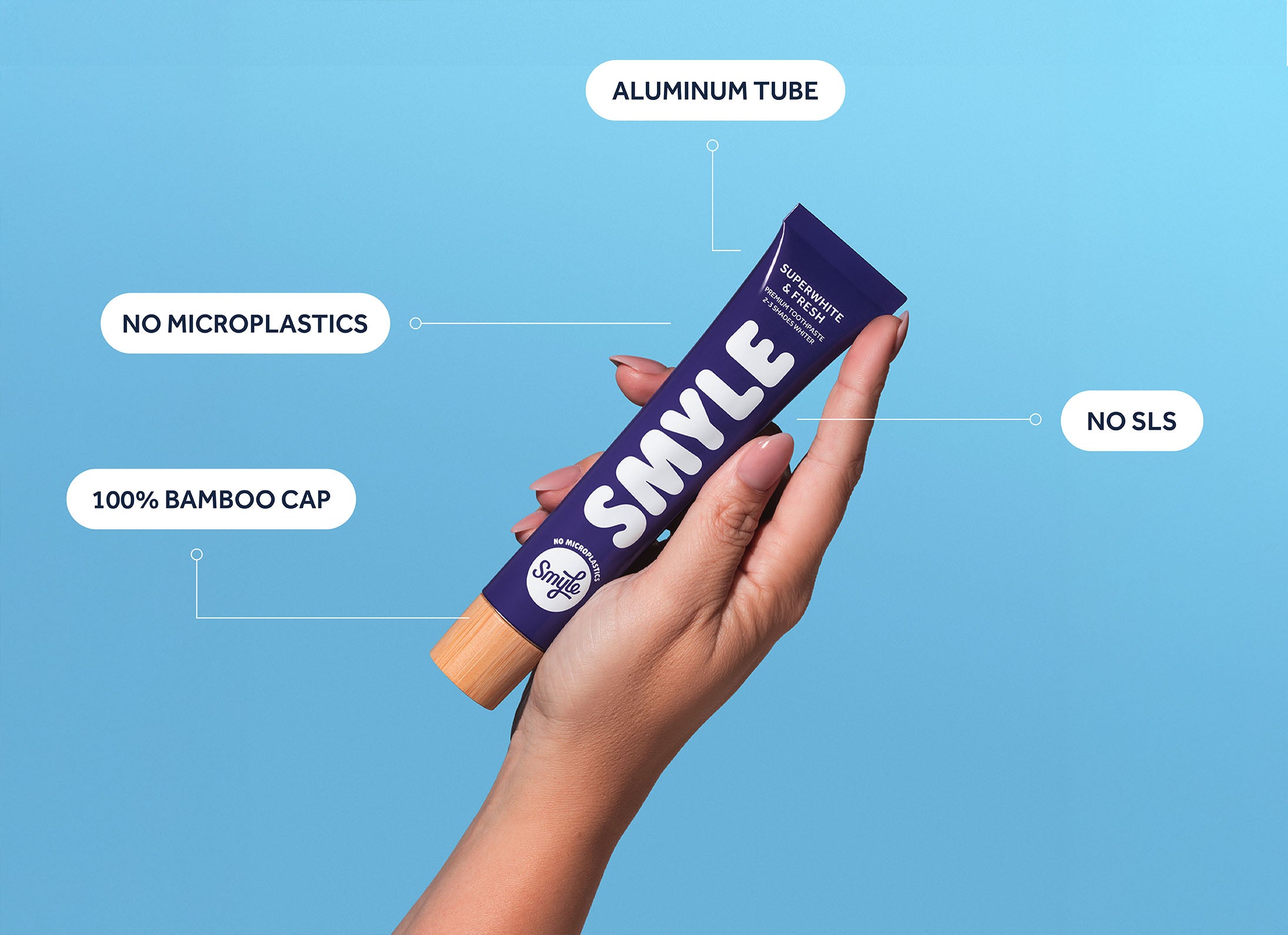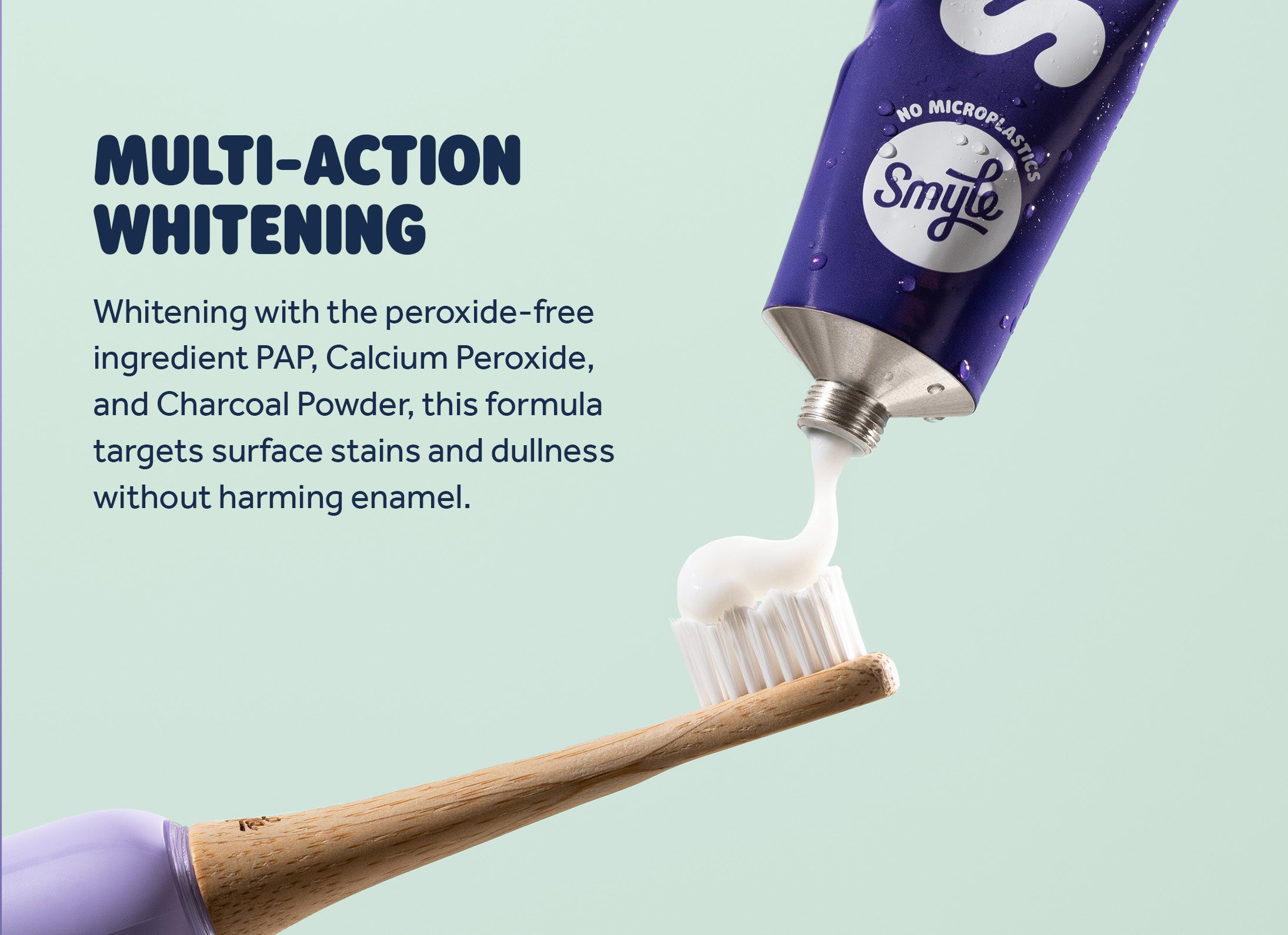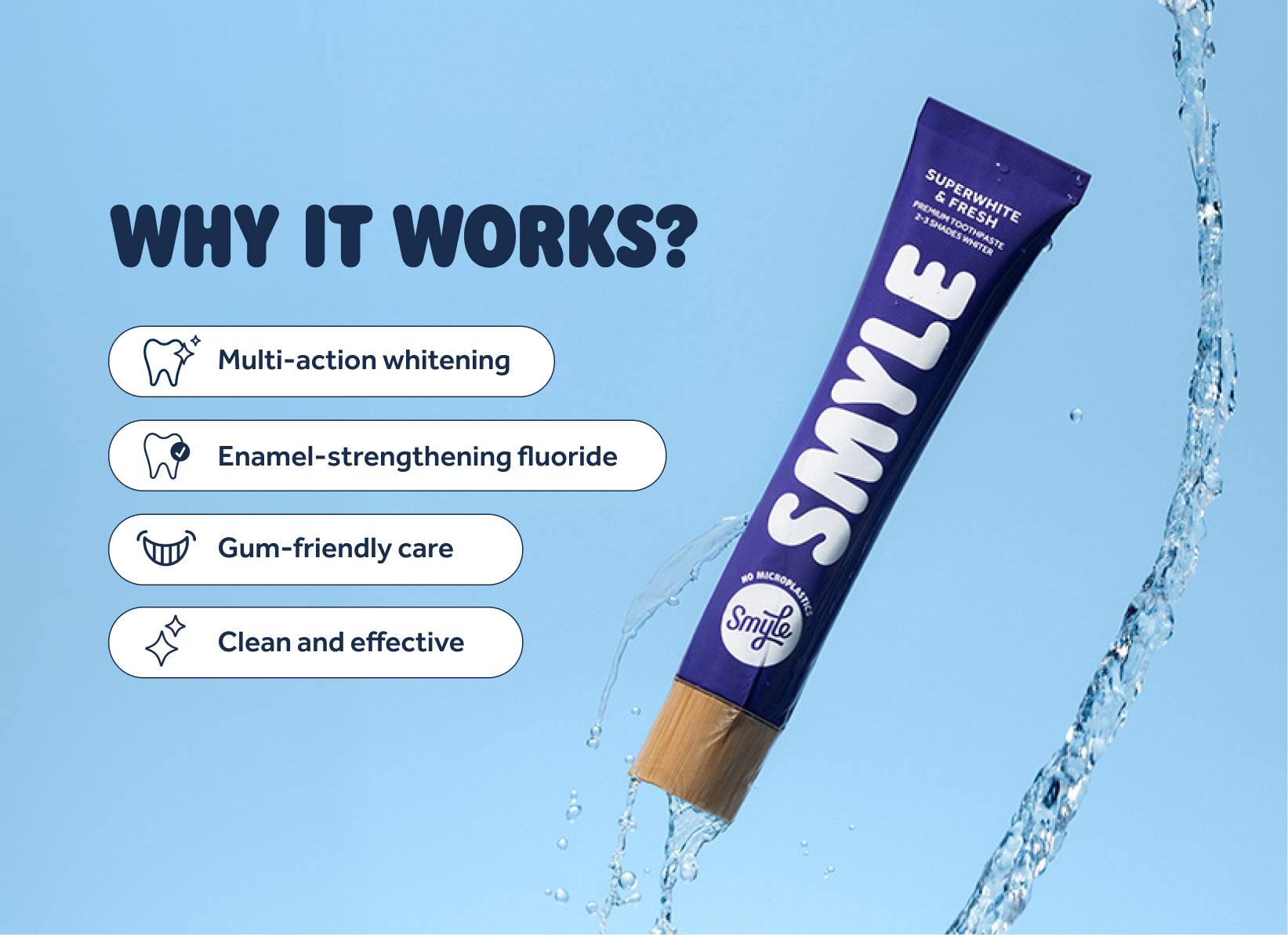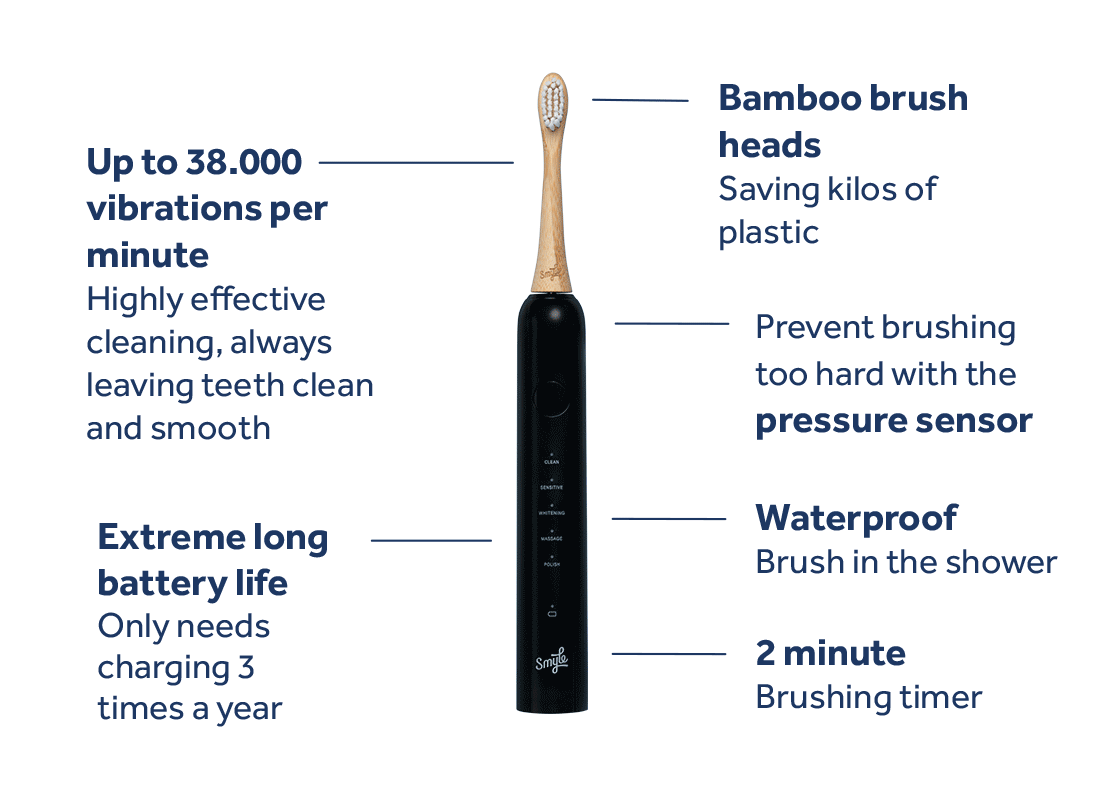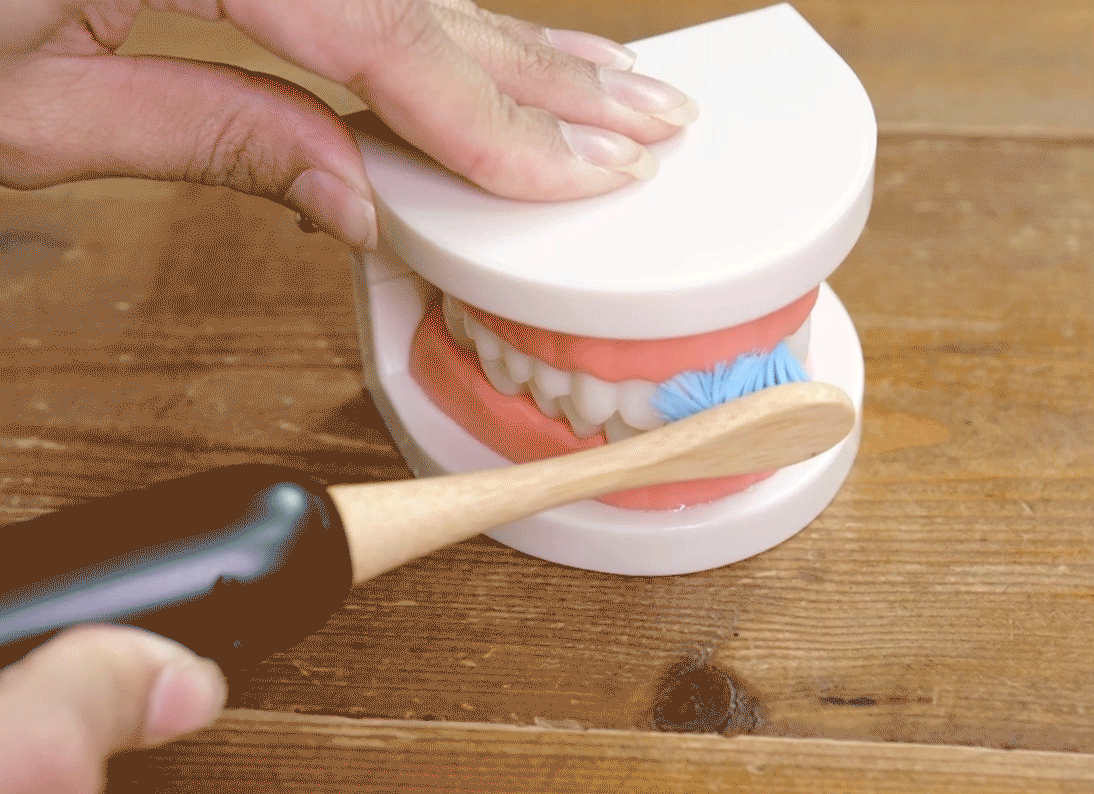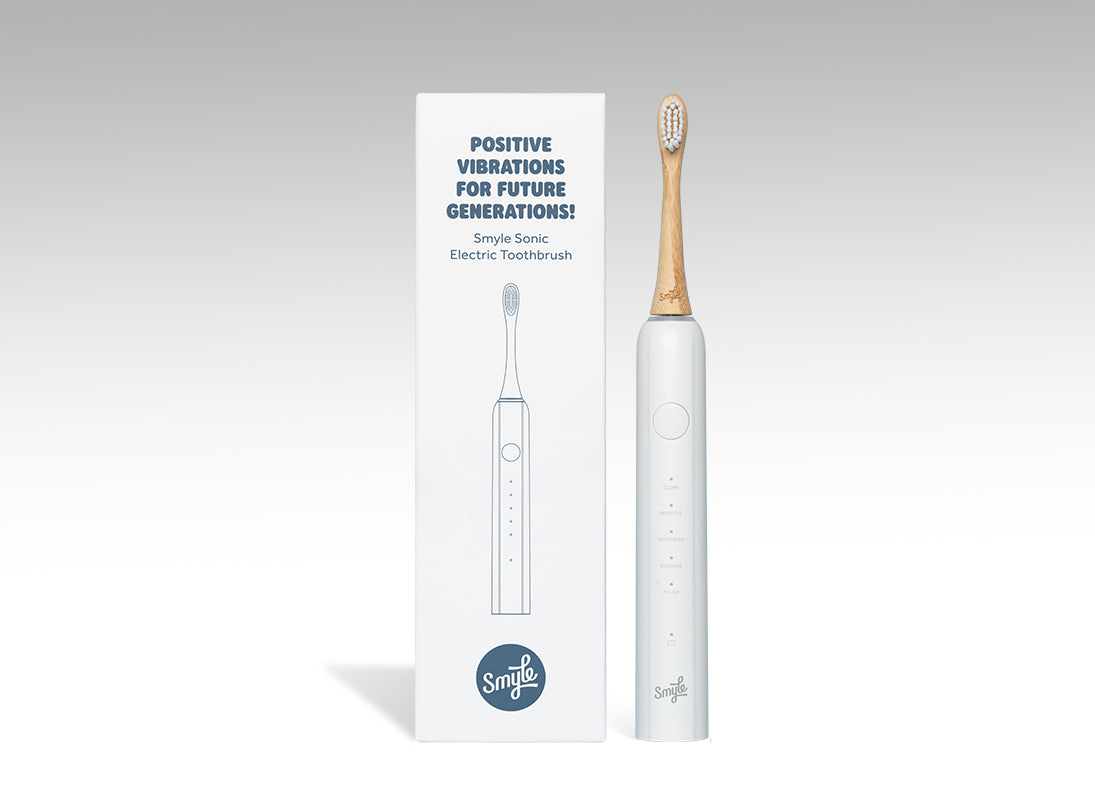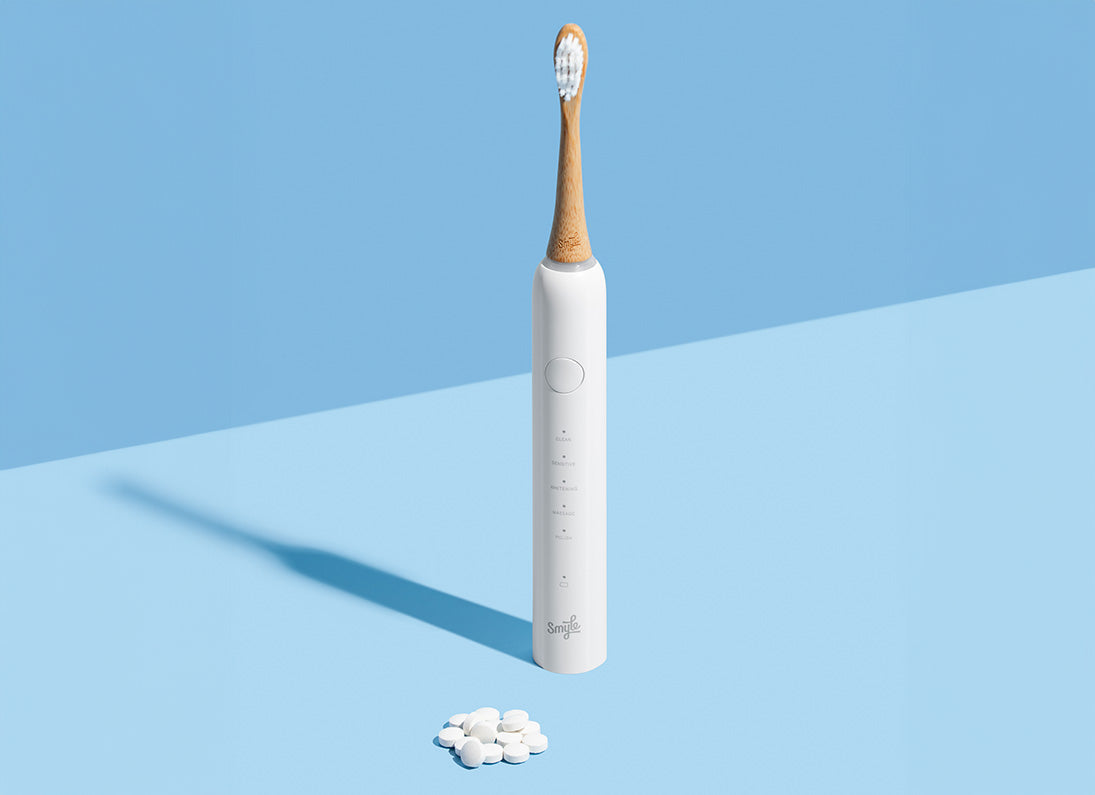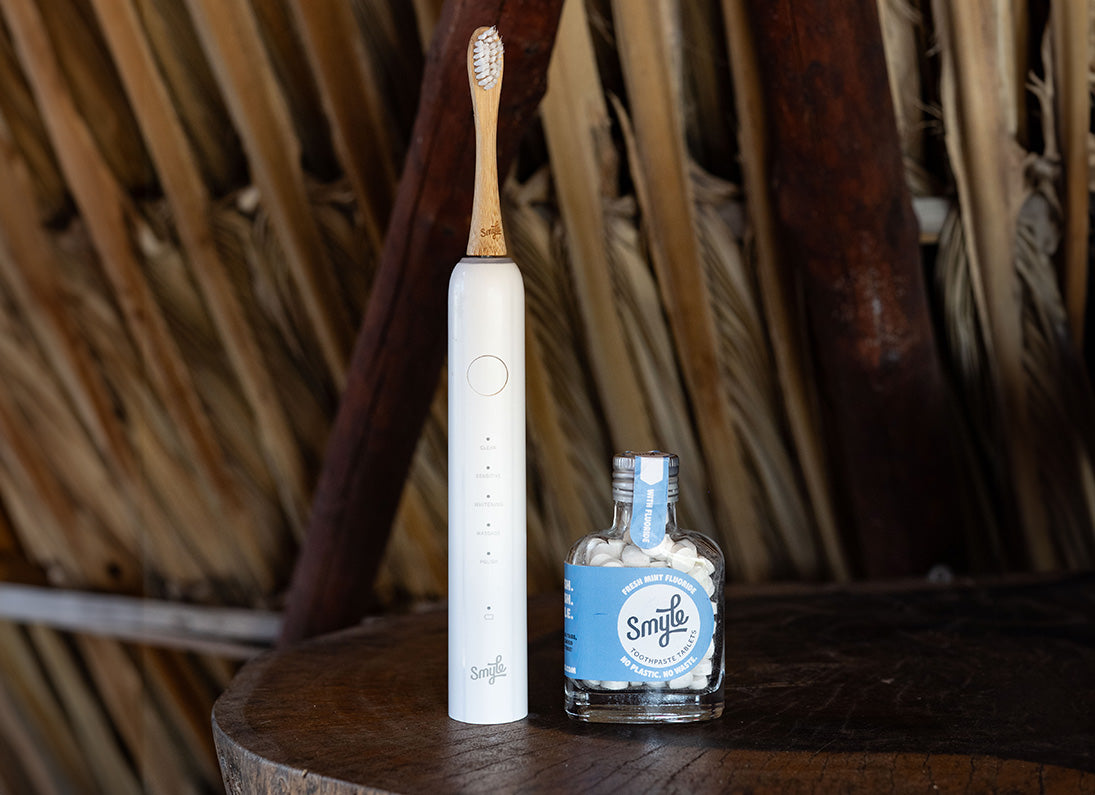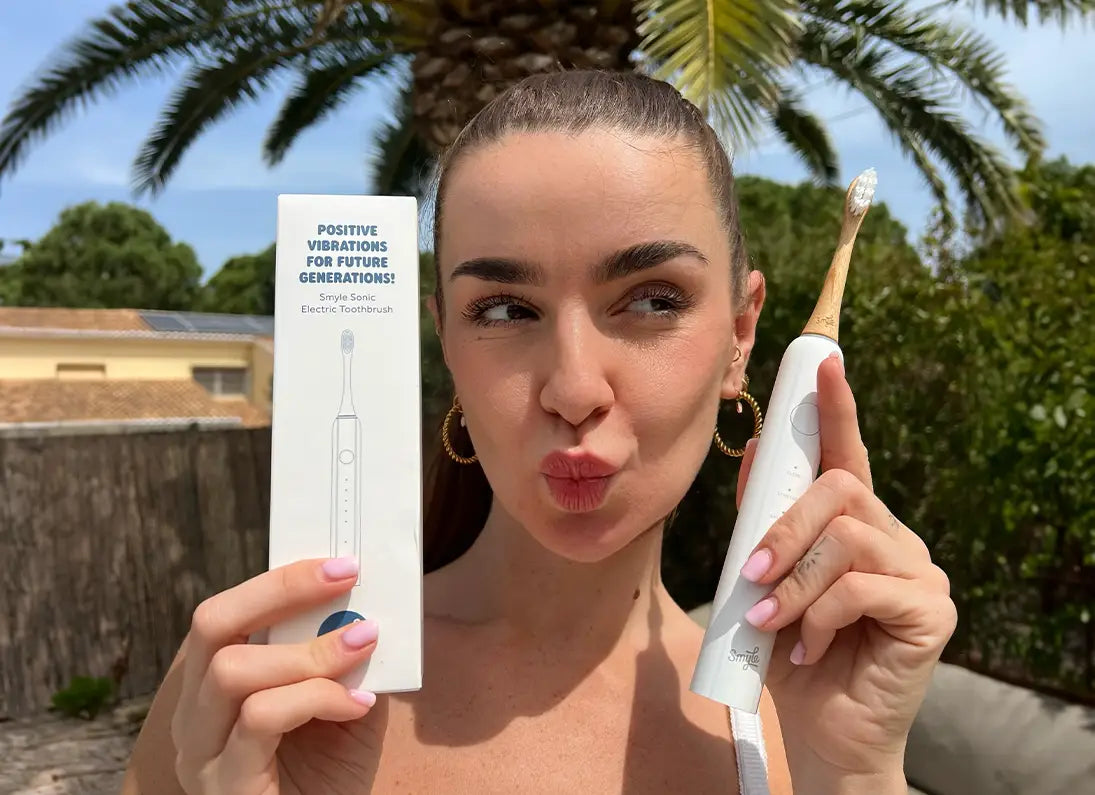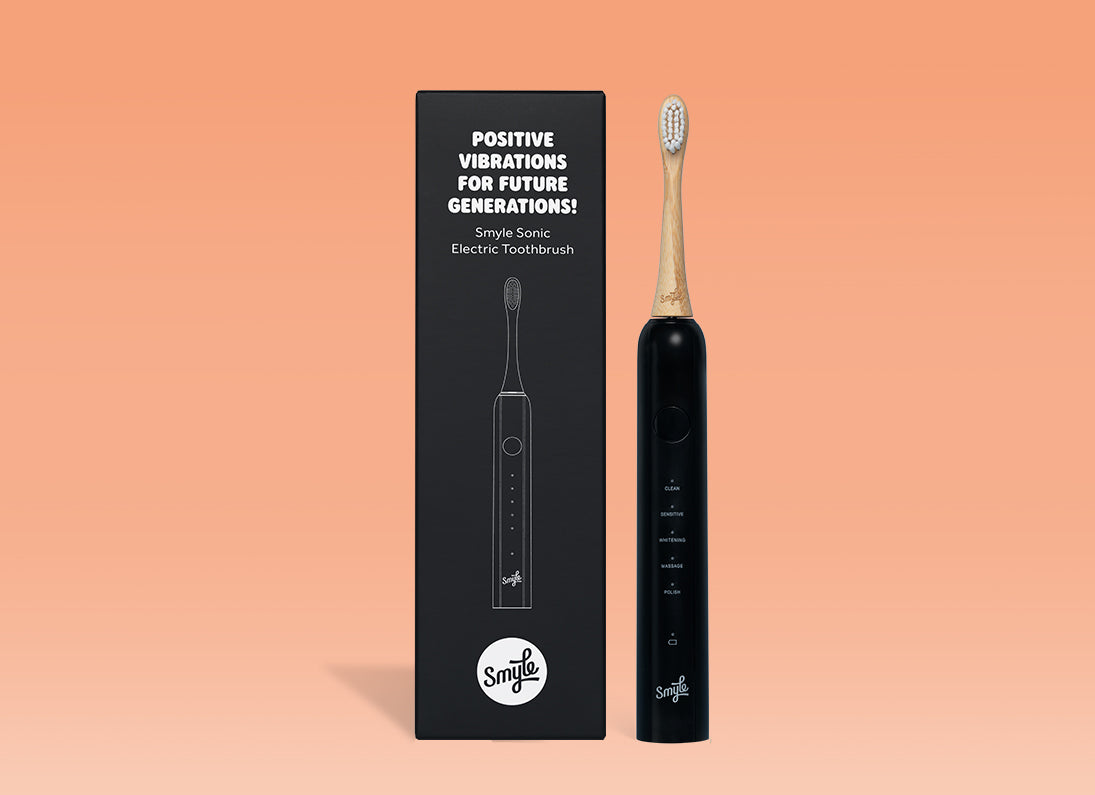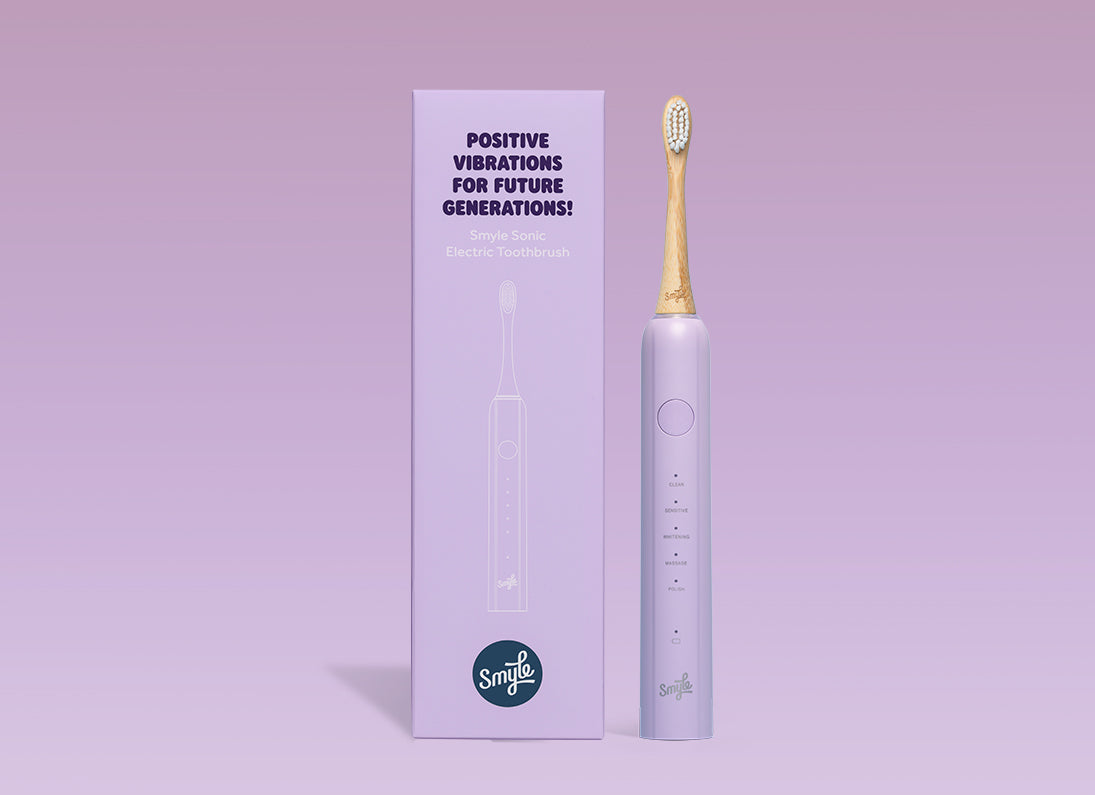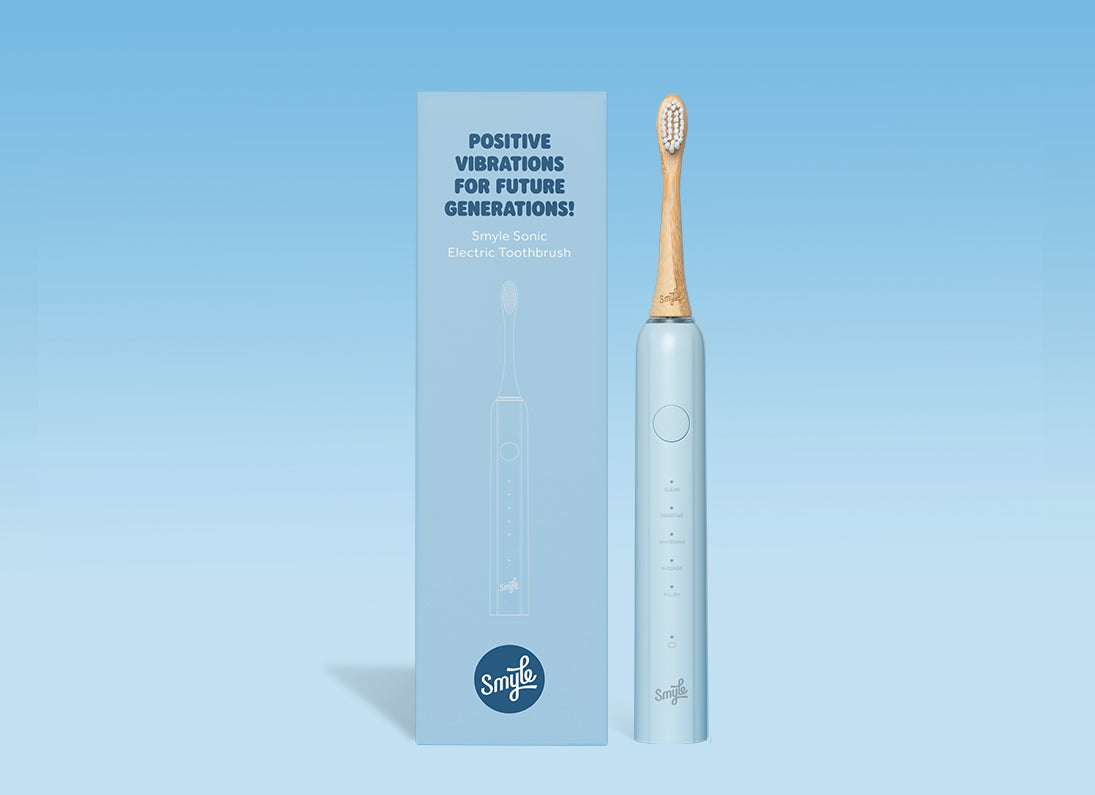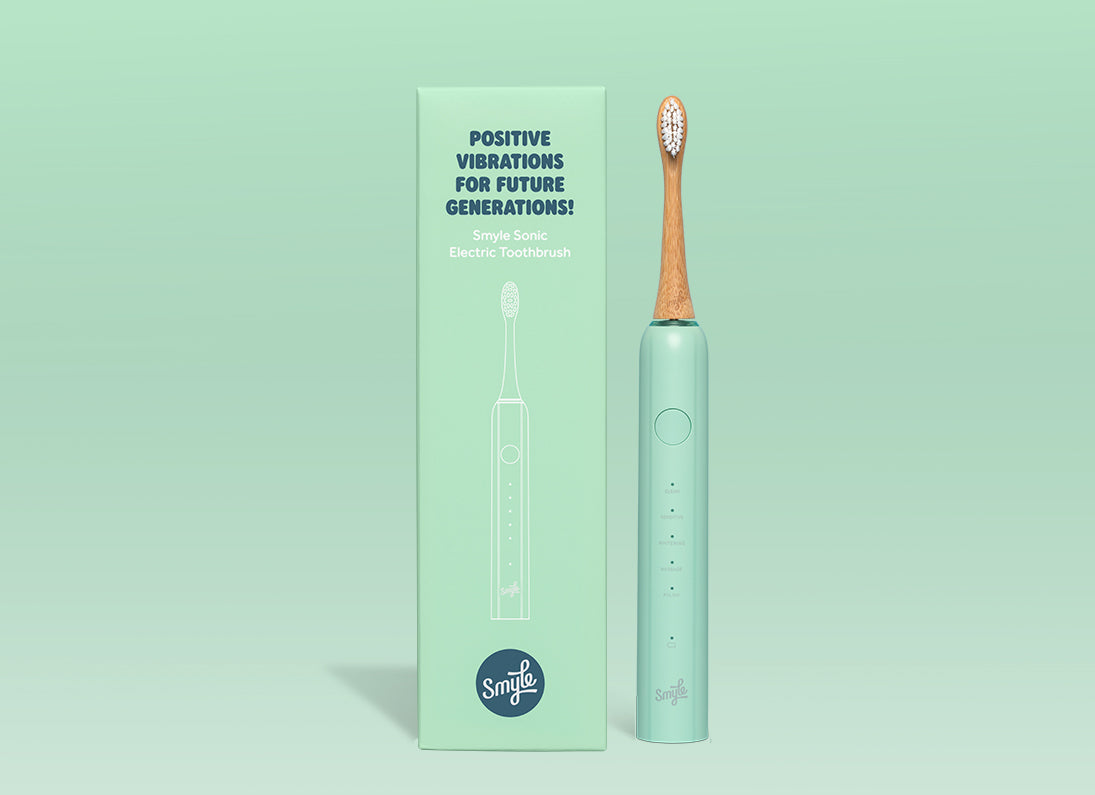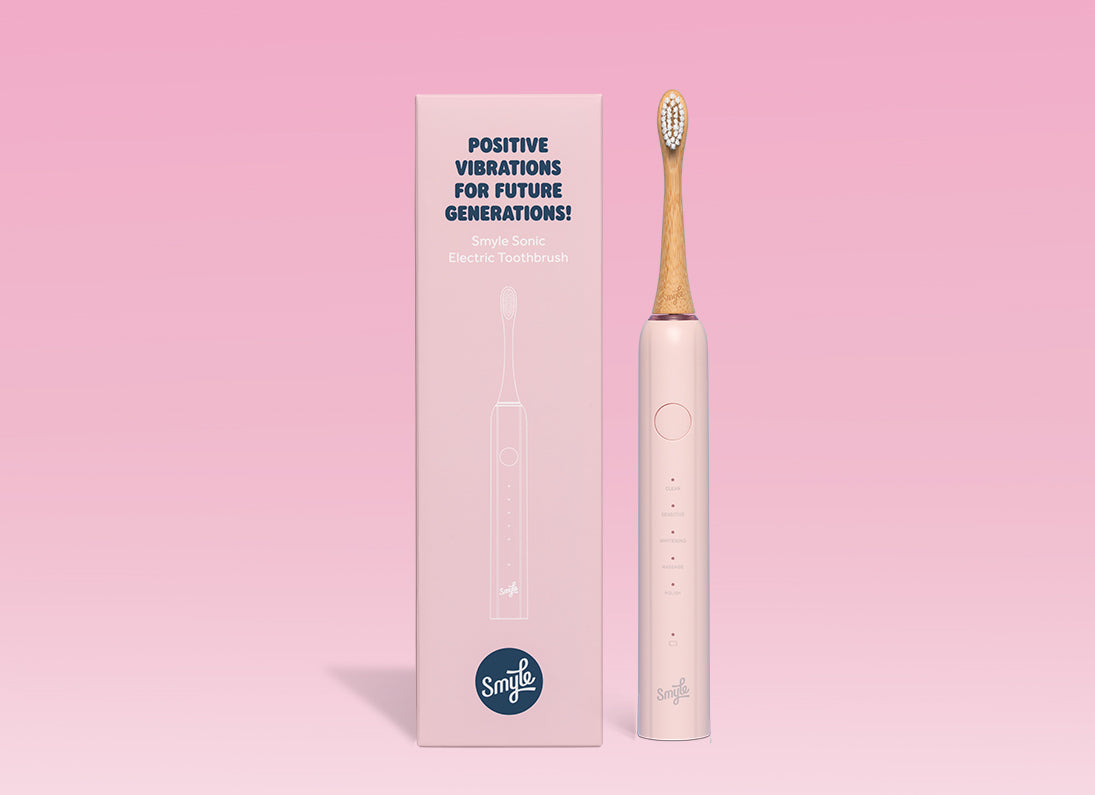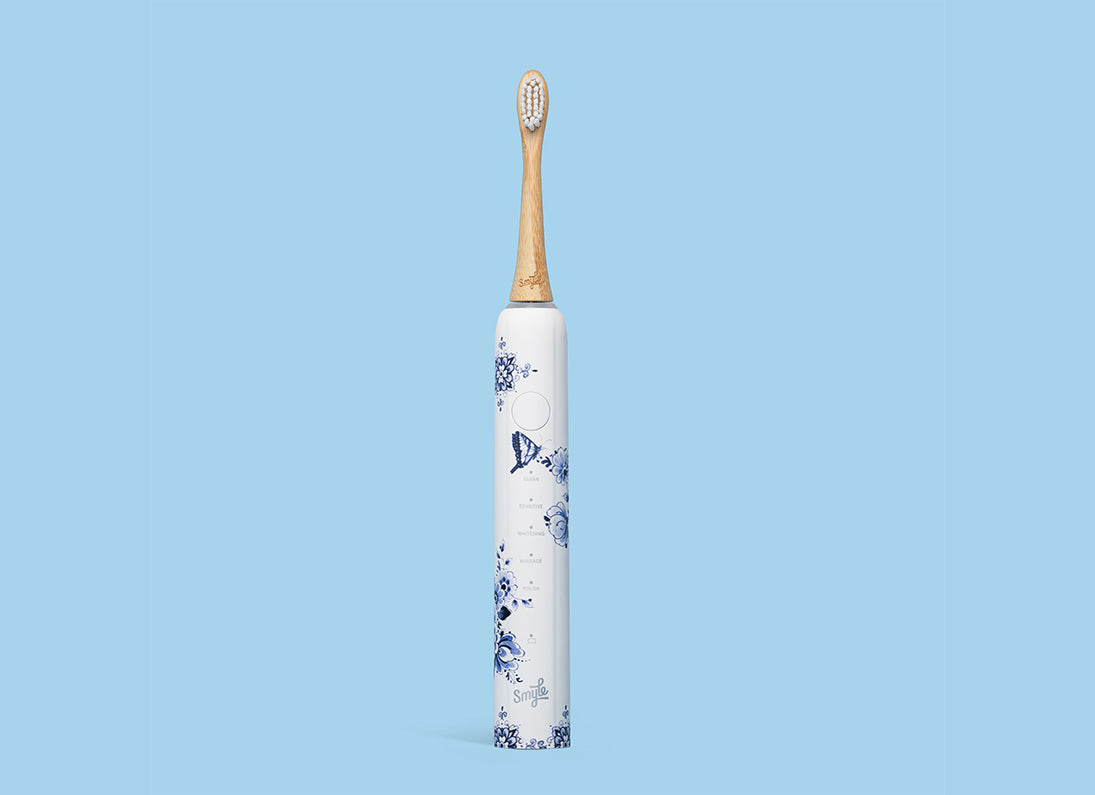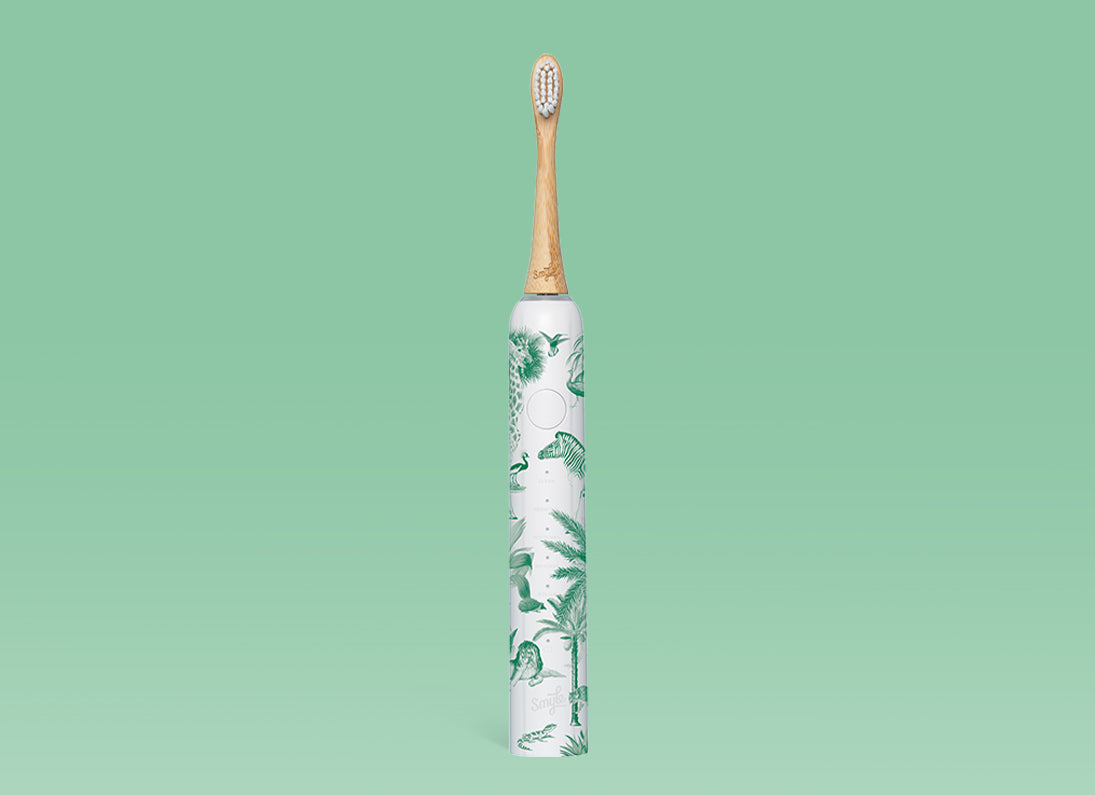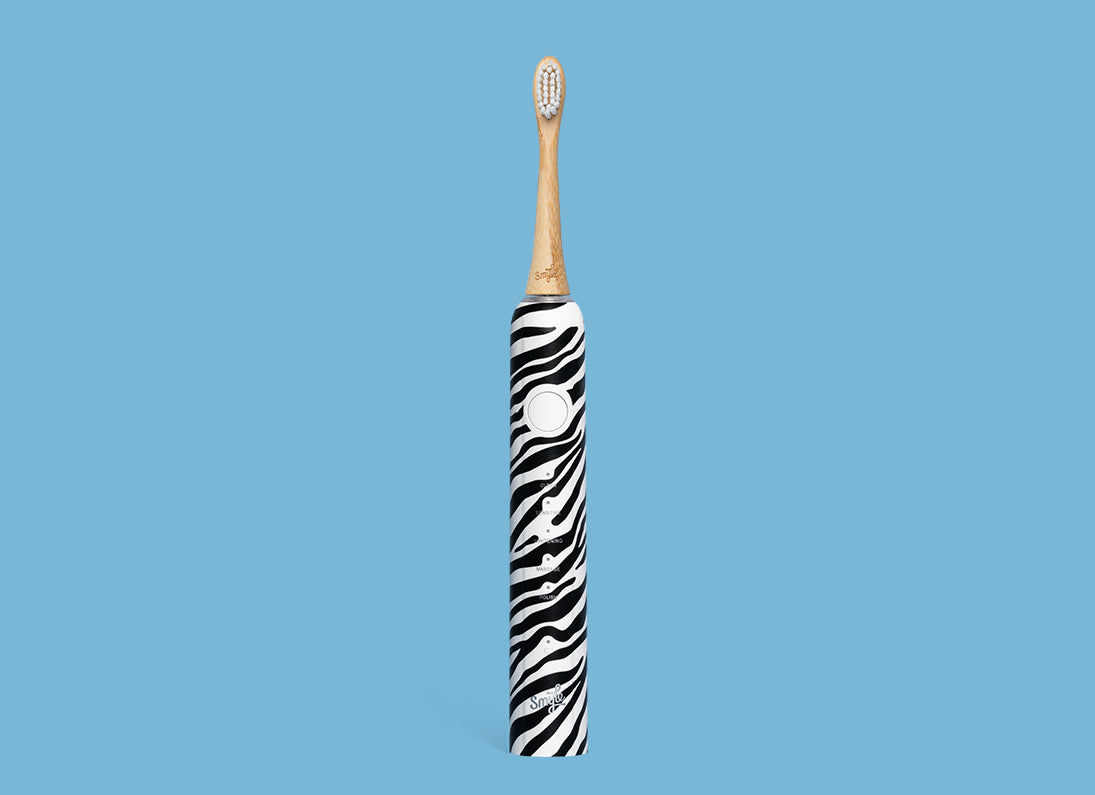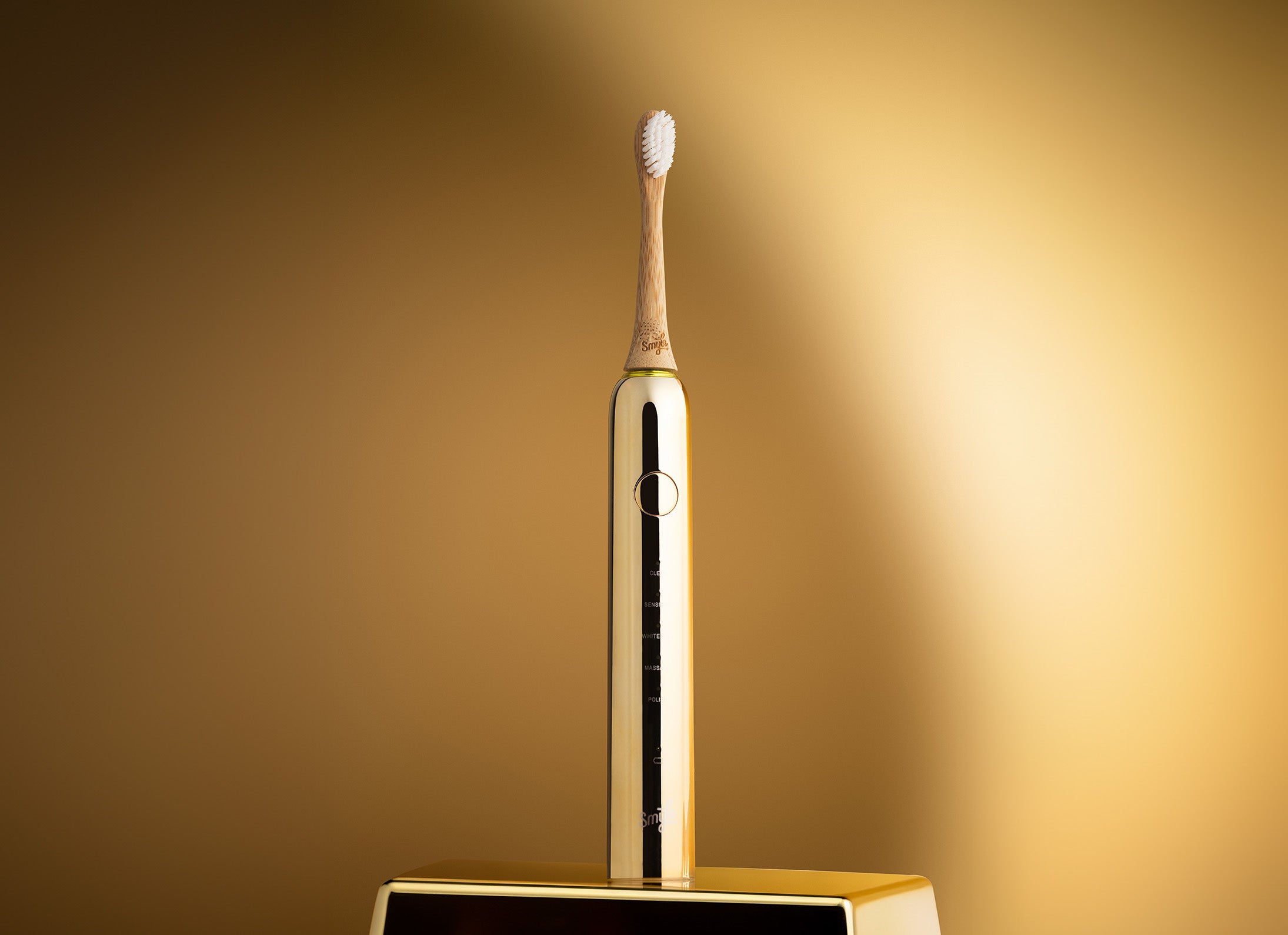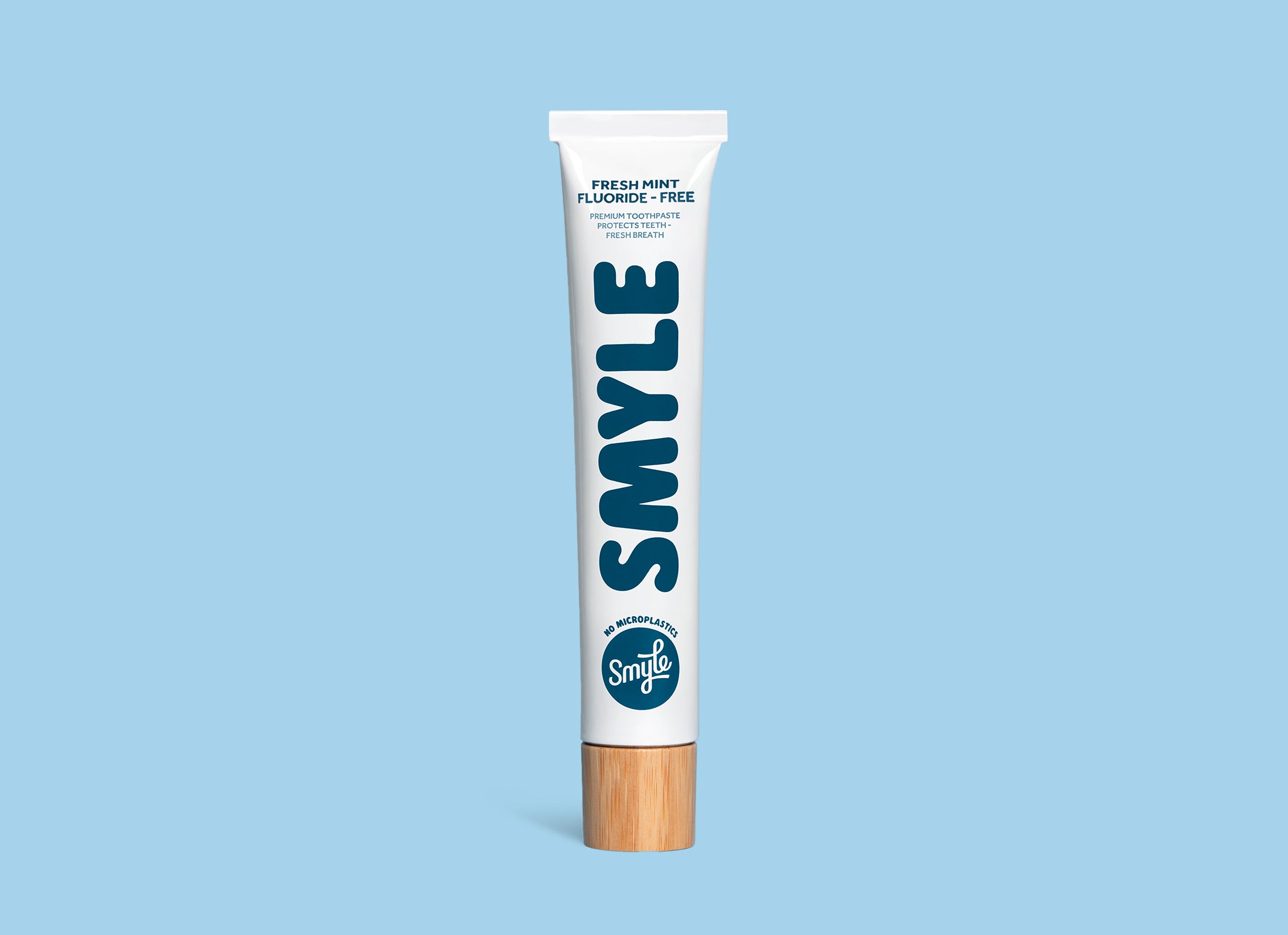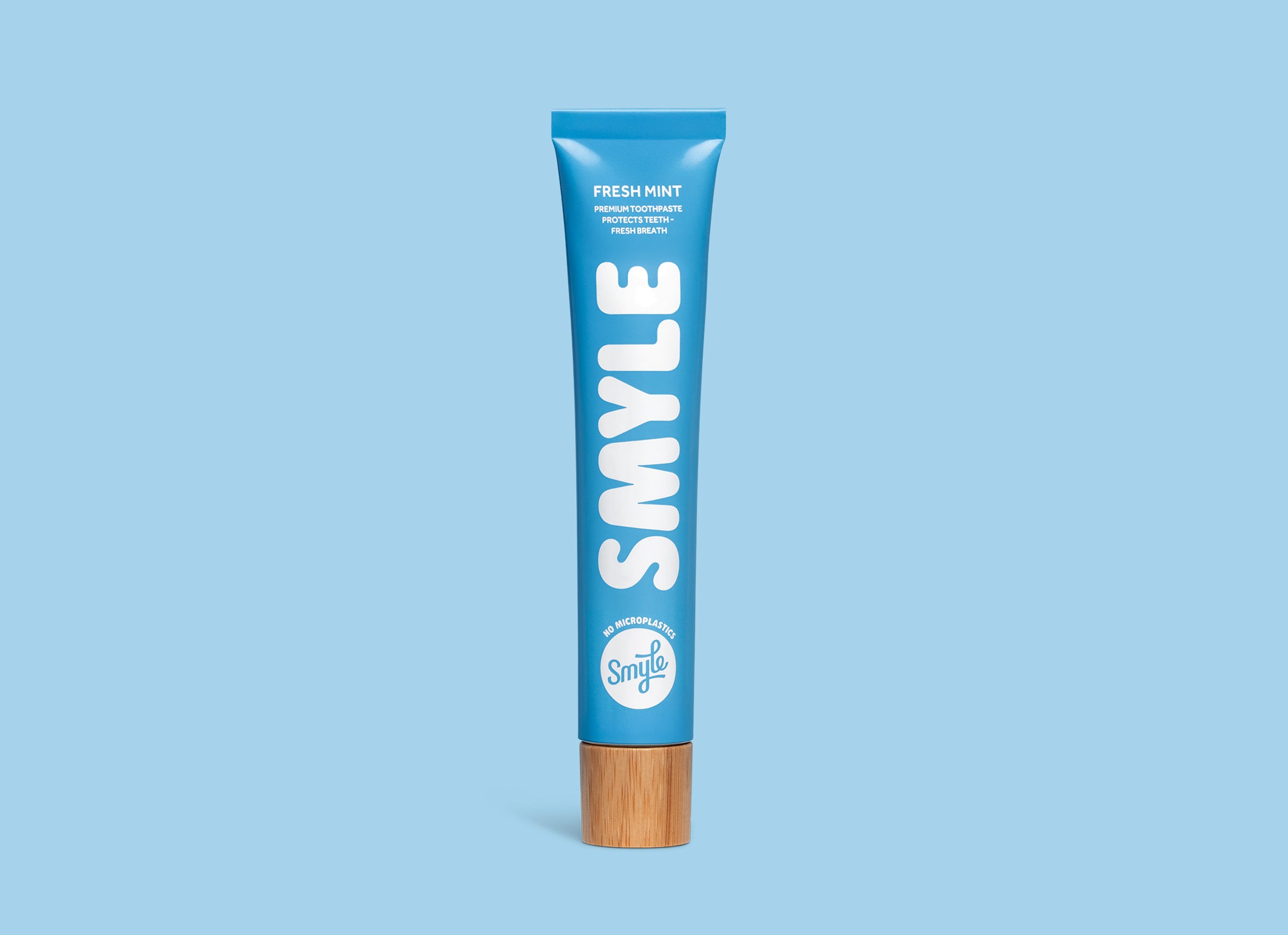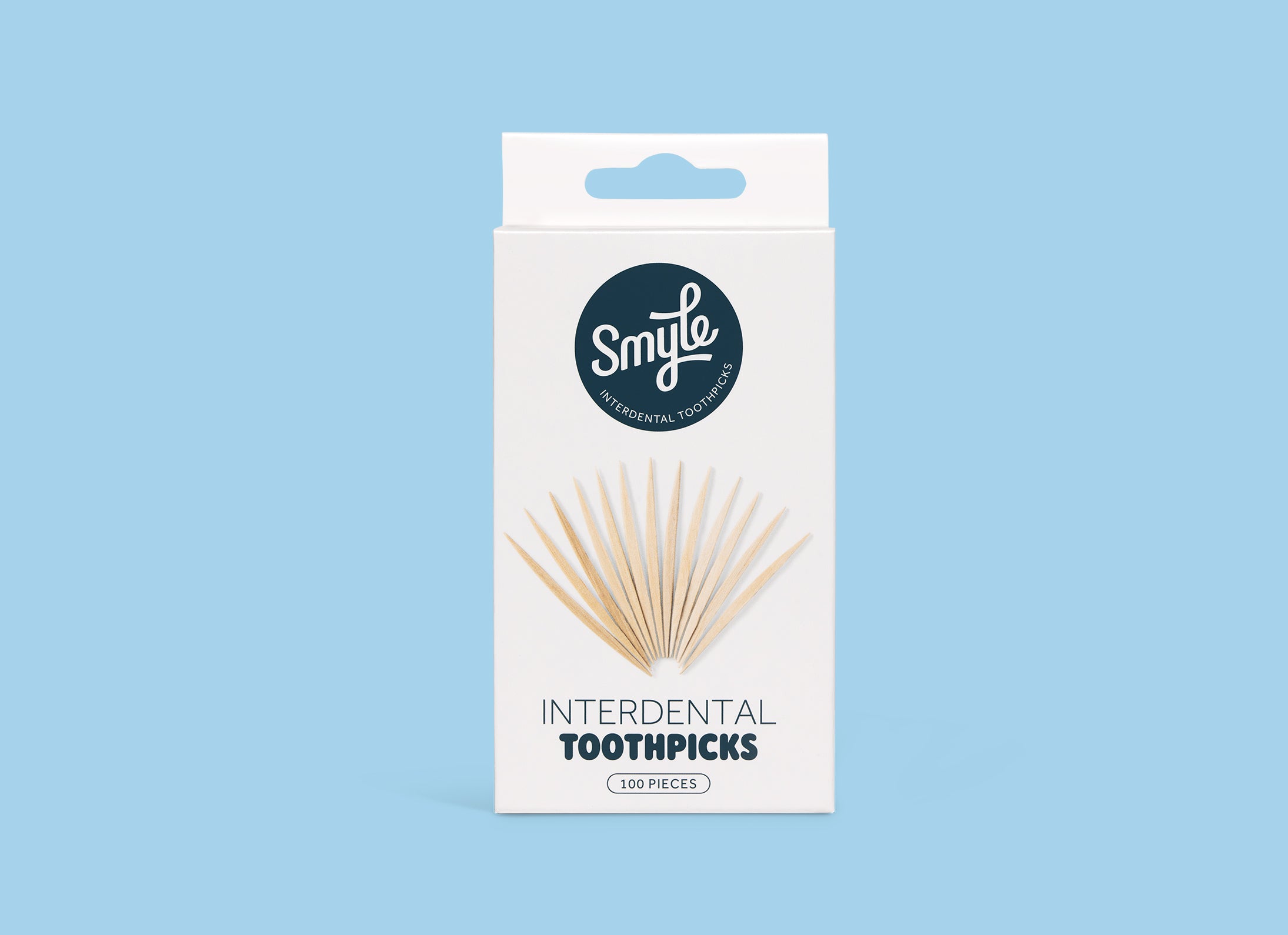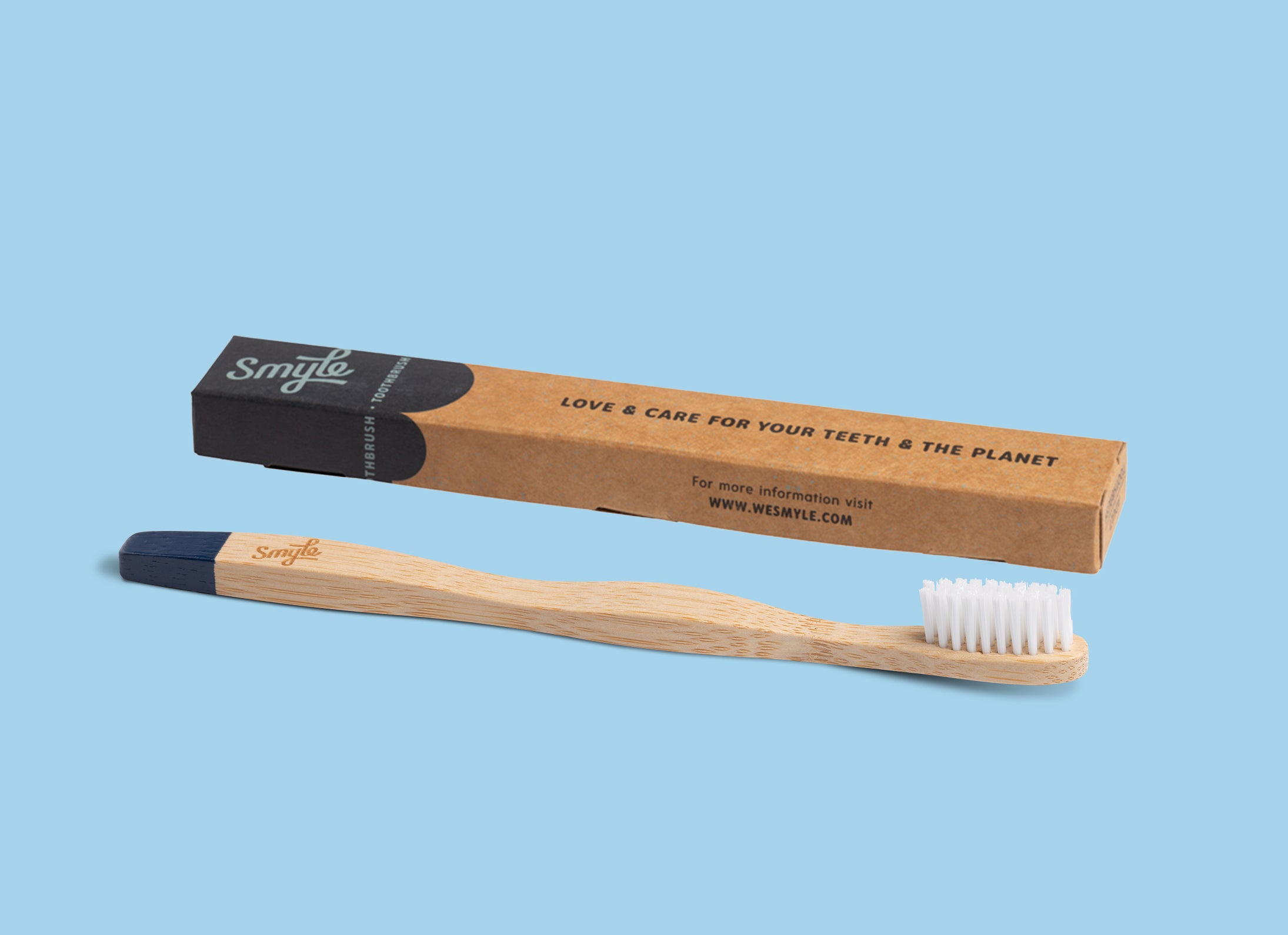
Dentistry is constantly seeking new and improved methods to restore and enhance our teeth. One of these emerging trends in dentistry is the use of composite teeth, which are becoming increasingly popular among both dentists and patients. Composite teeth are restorative materials used to repair broken, damaged, or discolored teeth. What are the benefits of these, and how do they work? Smyle explains everything in this blog post.
What Are Composite Teeth?
Composite teeth, or composite veneers, are used to restore damaged, discolored, or broken teeth. These modern dental materials provide an excellent alternative to traditional restorations like amalgam fillings or porcelain crowns. Compared to other types of dental restorative materials, composite teeth offer several advantages, which you’ll read about below.
The Benefits
A Natural Appearance
One of the key advantages of composite teeth is that they look very natural and beautiful. Dentists can match the color and shade of the composite material to the natural color of your teeth. This allows them to create restorations that are almost indistinguishable from the rest of your teeth. The result is a seamless blend in your smile, giving you a stunning, natural look. The composite material can even be shaped and polished to mimic the texture of real teeth, making it not only look like a natural tooth but feel like one as well.
Less Invasive Treatment
Another advantage of composite teeth is that the treatment is usually less invasive, and your natural tooth structure is preserved. For example, if you get a composite filling instead of a traditional amalgam filling, less healthy tooth tissue needs to be removed. The dentist can apply the composite material directly onto the affected tooth and securely bond it with the proper techniques. This way, your natural tooth structure remains mostly intact, which is really great.
Longer Lifespan
In addition, composite teeth last a long time! Modern composite materials are super strong and can last a significant amount of time if you take good care of them and visit your dentist regularly. They are much more resistant to wear, cracking, and discoloration than in the past. So, when you opt for composite fillings or restorations, you can trust that you have a reliable solution that will last for years. That means fewer trips to the dentist for repairs!
Compatible with Your Body
Last but not least, composite teeth are well-suited to your body and reduce the risk of allergies. The composite material is made from safe and biocompatible components, making it easy for your body to accept. Compared to other materials like metals or porcelain, the likelihood of allergic reactions or sensitivity in patients is lower with composite. This makes it a great choice for a wide range of people, even if you're sensitive to other dental materials. So, you can confidently choose composite teeth!

Some Disadvantages of Composite Teeth
However, like everything, composite teeth have their disadvantages alongside their benefits.
Risk of Discoloration and Stain Sensitivity with Composite Teeth
One of the possible downsides is the risk of discoloration and stain sensitivity. Although modern composite materials are increasingly resistant to discoloration, factors such as consuming coffee, tea, or red wine over time can still lead to surface stains. Additionally, composite teeth can also be prone to wear and chipping, especially in patients who grind their teeth or have a misaligned bite. This can result in small breakages or even fractures of the composite material.
Longer Treatment Time
Another aspect to consider is the complexity of the procedure and the longer treatment time compared to some other restorative options. Applying composite teeth often requires careful preparation of the tooth, layering the composite material in multiple layers, and curing each layer using special light sources. This can result in longer time spent in the dentist's chair, especially when it comes to extensive restorations.
Cost and Insurance Coverage of Composite Teeth
Finally, the cost and insurance coverage can also be a factor when considering composite teeth. While the exact costs vary depending on various factors, such as the extent of the restoration and the location of the dental practice, composite teeth are generally more expensive than traditional restorative materials like amalgam fillings. Additionally, not all dental insurance plans provide full coverage for composite teeth, meaning patients may have to cover part of the cost themselves.
Frequently Asked Questions
How long do they last?
The lifespan of composite teeth can vary, but generally, they last between 4 and 8 years. Durability depends on factors such as the location of the restoration in the mouth, chewing pressure, the patient’s oral hygiene, and any habits like teeth grinding.
Does it hurt during placement?
The placement of composite teeth is generally not painful. A local anesthetic is often used before the dentist begins, to numb the area and minimize discomfort. Some patients may experience slight sensitivity after the procedure, but this should be temporary.
How long does the placement take?
The time required to place composite teeth varies depending on the extent of the restoration and other individual factors. Generally, the placement of a composite restoration takes one to two hours, including the preparation of the tooth, application of the composite material, and finishing.
Can They Discolor?
Yes, composite teeth can discolor over time, especially if they are exposed to foods and drinks that contain strong dyes, such as coffee, tea, red wine, and tobacco products. Regular dental cleanings and avoiding staining substances can help extend the lifespan of composite restorations.
A Versatile Solution
If you're looking for a dental solution that is both aesthetic and durable, composite teeth might be the ideal choice for you. With their natural appearance, less invasive procedures, and improved durability, these restorations offer numerous benefits for patients. Whether it's restoring damaged teeth, enhancing your smile, or addressing tooth discoloration, composite teeth provide a versatile solution!

